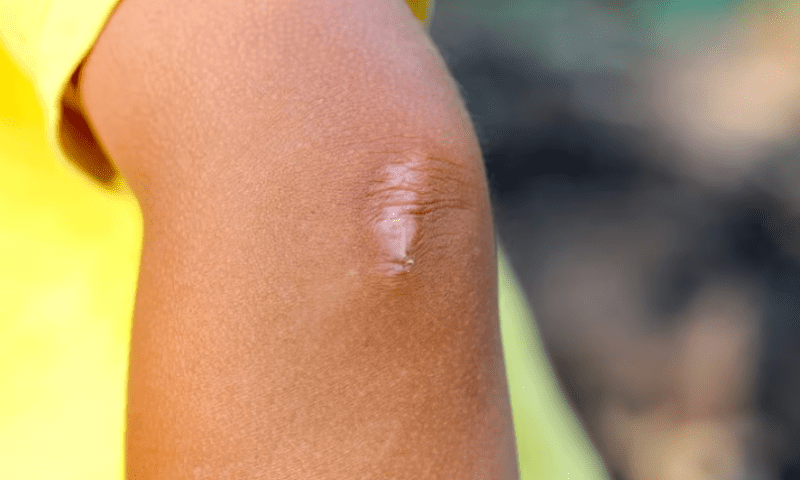Scars do more than remind us that the past is real. If they don’t heal properly, they can also get in the way of movement and even cause pain, not to mention leave patients feeling self-conscious. This is especially true for hypertrophic scars on the face, which, in the case of postoperative scars, often require additional surgery to correct. And that risks damaging the surrounding tissue or even undoing some of the original work.
Now, scientists from the University of California, Los Angeles (UCLA) have found that using drugs that modulate a key circadian rhythm protein can potentially reduce scar tissue buildup. In a study published Feb. 1 in Frontiers in Medicine, the researchers explained how they tested a series of five FDA-approved drugs on damaged mouse connective tissue cells. They found that two of those drugs reduced the healing time and also the creation of excess collagen, the mechanism that drives hypertrophic scarring. The work is the first step toward identifying a new means of helping postoperative scars heal better.
The findings hinge on the way the sleep-wake cycle, or the circadian rhythm, controls the immune system. The quality of wound healing depends in part on what time the damage took place. Studies on mice have shown that wounds inflicted during the “rest period” at night heal more slowly than those gotten during the day. Cell metabolism patterns dictated by the circadian rhythm change over the course of a 24-hour period, so the type of immune cells that respond to a daytime injury may not be around right away at night.
Previous studies by the UCLA team had shown that surgical wounds in mice without the circadian rhythm gene called neuronal pas domain 2, or Npas2, healed faster and more favorably than in their wildtype counterparts. This suggested that suppressing Npas2 altered the circadian rhythm so it was in a more favorable state for wound healing. While it obviously isn’t possible to knock out one’s circadian rhythm genes prior to an operation, the scientists wondered whether there were any drugs out there that inhibited Npas2—and, if so, whether they could help cells heal better.
To find out, they conducted high-throughput screening of more than 1,100 drugs to see which ones possessed wound healing properties, followed by round of a second high-throughput screening that narrowed the results to compounds that modulated the expression of Npas2 in mouse connective tissue cells, or fibroblasts.
Five FDA-approved compounds turned up: a monoamine reuptake inhibitor used to treat hypertension and psychiatric disorders; a drug that prevents cancer cell proliferation by binding to cytochrome C reductase, an enzyme implicated in tumor formation; a chlorine channel blocker for inflammation; a dopamine antagonist used to treat schizophrenia; and a drug to stimulate the central nervous system that’s no longer clinically used. Lead researcher Akishige Hokugo, Ph.D., told Fierce Biotech Research that the scientists were unable to disclose the names of the drugs used in the study.
Switching to human fibroblasts, the scientists applied each of the compounds to cells that had been scratched, modeling how surgical wounds damage individual fibroblasts. They then analyzed how collagen built up in the cells and how well the cells healed.
While all the compounds improved the quality of healing compared to a control solution, only two of them—the monoamine reuptake inhibitor and the anti-cancer drug—successfully reduced excess collagen biosynthesis. These two drugs, code-named Dwn1 and Dwn2 by the researchers, were then studied further in a series of gene regulation, cell differentiation and cell migration assays. Both ultimately showed that they were capable of improving wound healing by increasing cell migration to the injury site while limiting scar tissue buildup, at least in cell-based models.
It’s not yet clear how the compounds are acting on immune cells downstream of their impact on Npas2; these mechanisms will be further studied in future work, Hokugo said. His lab plans to continue its research to understand clinical implications as well as elucidating how Npas2 regulates wound healing.

